Honor Magic V3 Review: Thin as a pancake!
We may earn a commission if you make a purchase from the links on this page.

Honor Magic V3 Intro
Behold the Honor Magic V3! One of the thinnest foldable on the market (and the thinnest one when it launched last year). It's thinner than an iPad Air and thinner than any smartphone you can think of. I was thinking of clever ways to start this review, but sometimes the blunt truth is the best way to go.
The Magic V3 is the latest iteration of the Chinese foldable, and its aim is to take on the Galaxy Z Fold 6. A couple of days prior to the official launch of the V3, Honor dished out a very bold and aggressive PR campaign, showing a tiny engraved message, engraved on the Honor V3's hinge. It was a dig at Samsung in the form of an "apology" to all Galaxy Z owners.
Long story short, it says something along the lines of "Sorry if you're feeling betrayed, our phone is better."
I thought the days of companies trolling each other were long gone, but this bold move shows the confidence Honor has in its product. And it is great. It's unbelievably thin, it sports a large battery, the chipset onboard is flagship-grade, the camera system is potent, and the charging is super fast.
But is it great "for a foldable" or just great? We're going to find out!
Our new rating system deserves a few sentences here. We've revamped everything, and we have a very thorough and scientific approach to rating phones. There are 10 different areas we evaluate, and each one consists of many smaller components you don't see in the final score. Also, different areas have different weight toward the final score, as some are more important than others. Finally, if you think our scores have suddenly become very conservative, you're right. Our top-rated phone at the moment (the Honor Magic 6 Pro) has an aggregated score of 8.0 out of ten, and a score of 7.5 is normally awesome. We've done this to leave ourselves wiggle room for future phones, which no doubt will get better and better ratings. With that out of the way, let's start the review.
Long story short, it says something along the lines of "Sorry if you're feeling betrayed, our phone is better."
I thought the days of companies trolling each other were long gone, but this bold move shows the confidence Honor has in its product. And it is great. It's unbelievably thin, it sports a large battery, the chipset onboard is flagship-grade, the camera system is potent, and the charging is super fast.
But is it great "for a foldable" or just great? We're going to find out!
Our new rating system deserves a few sentences here. We've revamped everything, and we have a very thorough and scientific approach to rating phones. There are 10 different areas we evaluate, and each one consists of many smaller components you don't see in the final score. Also, different areas have different weight toward the final score, as some are more important than others. Finally, if you think our scores have suddenly become very conservative, you're right. Our top-rated phone at the moment (the Honor Magic 6 Pro) has an aggregated score of 8.0 out of ten, and a score of 7.5 is normally awesome. We've done this to leave ourselves wiggle room for future phones, which no doubt will get better and better ratings. With that out of the way, let's start the review.
Table of Contents:
- Specs
- Design and Display
- Camera
- Performance
- Software
- Battery and Charging
- Audio Quality and Haptics
- Should you buy it?
Also read: Google Pixel 9 Pro Fold vs Honor Magic V3: Battle for the future of foldables
Honor Magic V3 Specs
4.35 mm thickness… wait, what?
Let's start with an overview of the Honor Magic V3 specs:
| Specs | Honor Magic V3 |
|---|---|
| Size and Weight | Folded: 156.6×74.0×9.2 mm Unfolded: 156.6×145.3×4.35 mm 226 grams |
| Display | Main: 7.92-inch OLED, 120Hz LTPO, 1600 nits, 2344×2156 (402PPI) Cover: 6.43-inch OLED, 120Hz LTPO, 5000 nits, 2376×1060 (402PPI) |
| Processor | Snapdragon 8 Gen 3, 12GB RAM, 512GB storage |
| Software | MagicOS 8.0.1 over Android 14 |
| Cameras | 50MP wide 40MP ultrawide 50MP telephoto 20MP cover screen selfie 20MP inner screen selfie |
| Battery Size | 5,150 mAh silicon-carbon |
| Charging Speeds | 66W wired charge 50W wireless charging (with proprietary charger) |
| Prices | 12/512GB for $$$ |
Honor Magic V3 Design and Display
Thin as a pancake
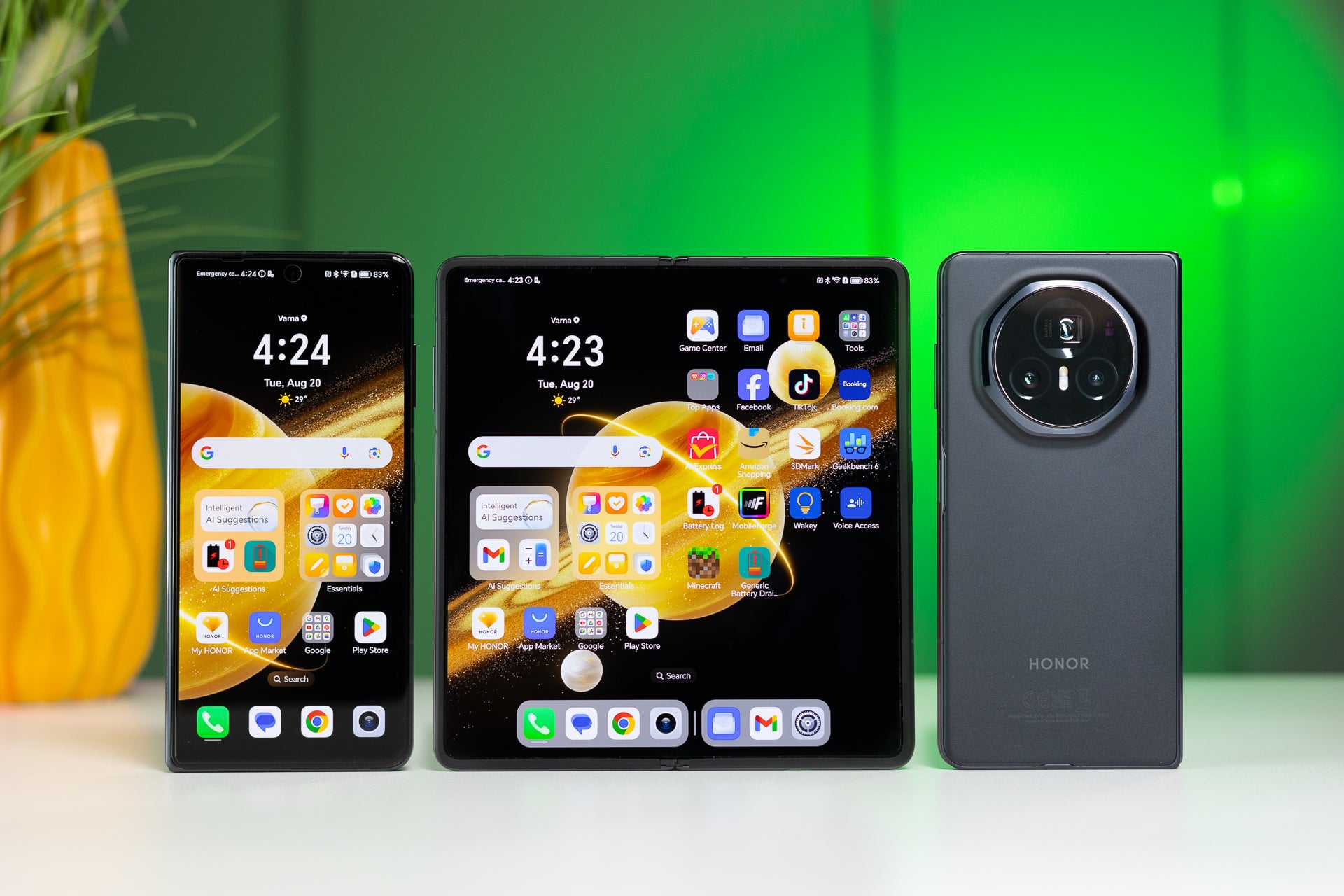
The Honor Magic V3 will challenge your idea of thin (Image by PhoneArena)
Okay, guys, I know that pancakes in the US aren't that thin, but where I grew up, they're almost transparent. So, I'm keeping the analogy! This thing is very, very thin. At 4.35 mm, it almost feels too thin. Looking at the bottom, this foldable is barely able to house the USB-C port.
When you fold the Magic V3, you get an almost compact phone with a 6.4-inch screen and around 9 mm thickness. I know the difference to other foldables isn't that huge (the Galaxy Z Fold 6 measures 5.6mm unfolded and 12.1mm folded), but a couple of millimeters make a huge difference. It's uncanny!
Now, after I've blabbered about the thickness of the device for far too long, let's check out the design. The phone uses exotic materials for its construction, such as Special Fiber (similar to fiberglass, Kevlar, and carbon fiber), Super Steel (the hinge should withstand 500,000 folds and unfolds), Super Armored Inner Screen (nanoscale coating allegedly making the flexible screen 500% more scratch-resistant), and NanoCrystal Shield for the cover screen.
While these are a lot of "Super," and "Special" words slapped here and there, the end result is quite sturdy and feels very premium in the hand. It's still a foldable phone, though, so I won't be doing scratch or drop tests.
It's worth noting that the stereo speakers are mounted in the left wing of the phone, so when you unfold it, they remain left side, resulting in a bit weird audio experience if you keep the phone vertical.
The back is matte and repels fingerprints quite well, the hinge is very shiny and polished, and the camera system on the back is housed in a circle, which in turn resides in an octagonal polished metal frame. Overall, the phone looks very stylish and premium.
The available colors are Black, Green, and Reddish Brown, all looking classy and somewhat business-y. The Magic V3 is also IPX8 water resistant, so you don't have to worry about a splash or two.
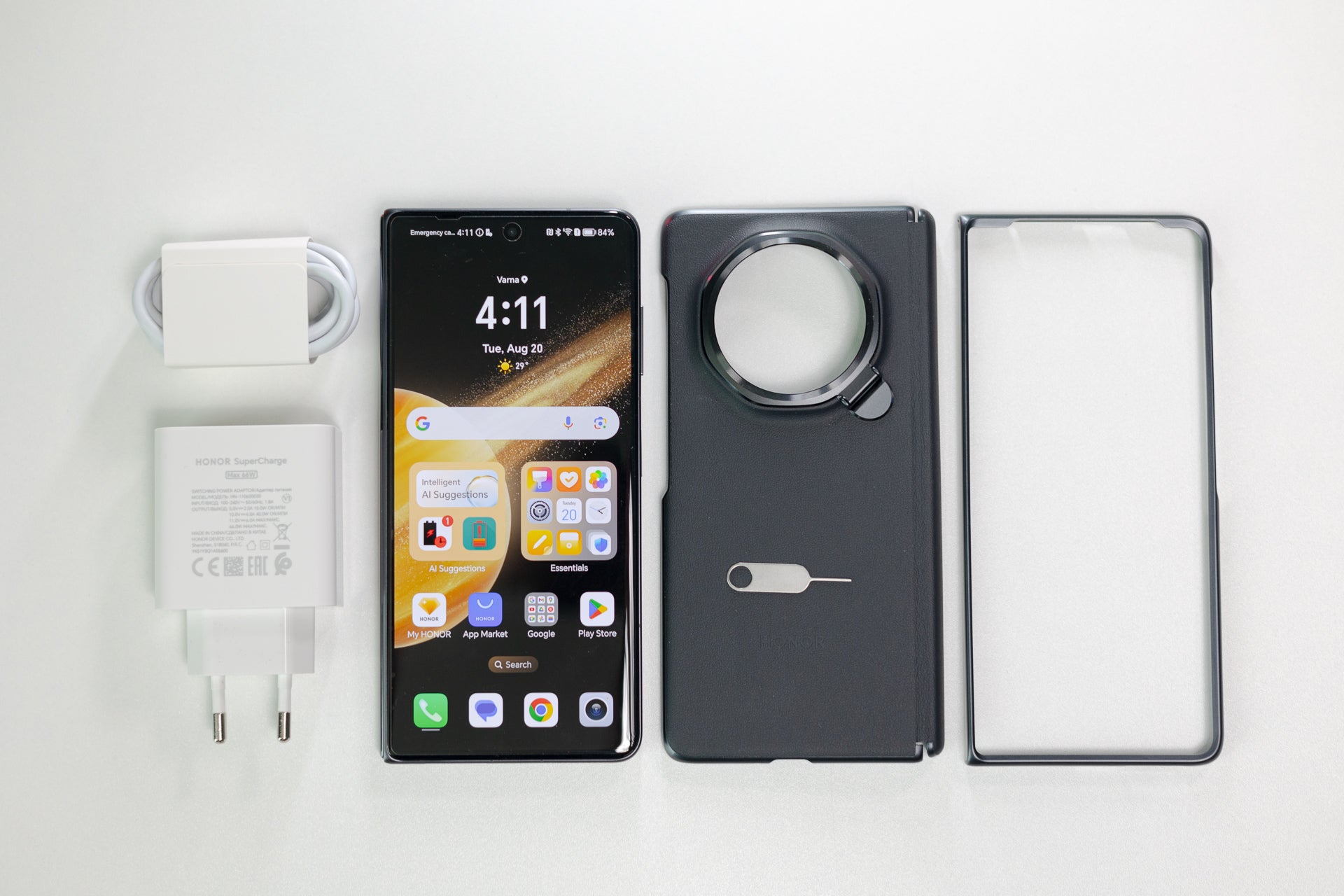
The Magic V3 comes with everything you need (Image by PhoneArena)
The box is also very stylish (which is to be expected, considering the asking price), it almost feels like a present box. The fast charger, the USB-C cable, and the included case are all nested in separate spaces, there's a magnetic lock on the box, and it's also made from high-quality cardboard. So much for saving dolphins and the planet (we actually prefer a well-stocked retail box).
Speaking of the included case, it's a leather coated back cover with a tiny additional frame for the cover screen. There's a metal ring around the cutout for the camera, which mimics the shape and material of the one around the camera itself, and it also serves as a kickstand thanks to a tiny hinge.
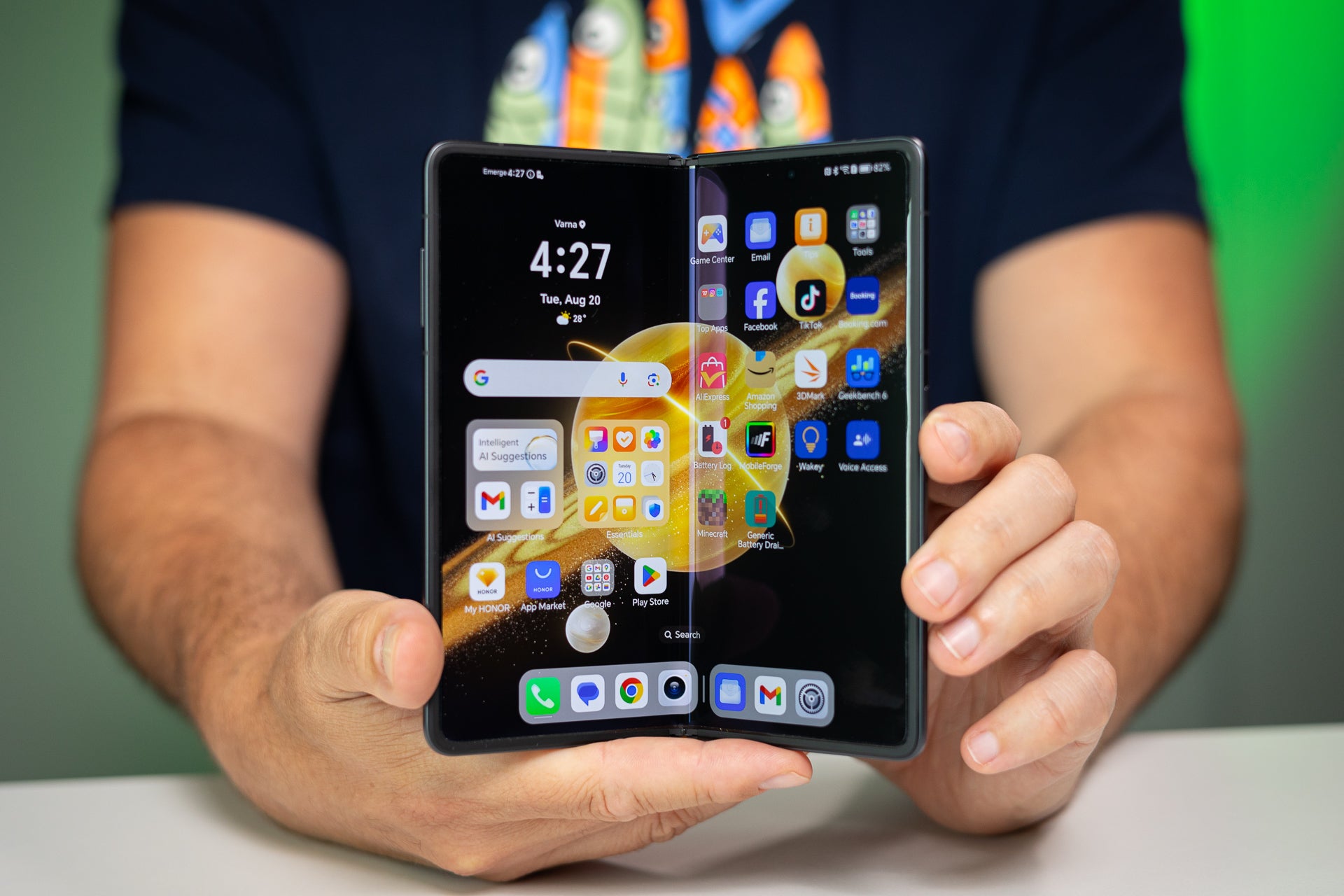
The crease is still there but much less prominent (Image by PhoneArena)
Moving to the display, or should we say displays of the Honor Magic V3. Honor has gone for uniformity when it comes to resolution, pixel density, and refresh rate between the inner and cover screens. Both are OLEDs with 402 PPI pixel density, and both use LTPO tech to provide 1-120Hz dynamic refresh rates. You even control both screens from a single tab in the settings menu.
This results in a very smooth and coherent visual experience. The inner display is also quite bright at over 1000 nits, the crease is still visible, but it's one of the less prominent we've tested so far.
There are some interesting health-related settings in the menu. In addition to the high frequency pulse width modulation (3840Hz and 4320Hz for the inner and cover screens, respectively), there's now something called Defocus Eyecare. It uses myopic defocus stimulation to relieve refractive stress on the eyes. You also get the Natural Tone toggle, which automatically adjusts tone depending on ambient lighting, and the Eye Comfort setting as well, which filters blue light.
This results in a very smooth and coherent visual experience. The inner display is also quite bright at over 1000 nits, the crease is still visible, but it's one of the less prominent we've tested so far.
There are some interesting health-related settings in the menu. In addition to the high frequency pulse width modulation (3840Hz and 4320Hz for the inner and cover screens, respectively), there's now something called Defocus Eyecare. It uses myopic defocus stimulation to relieve refractive stress on the eyes. You also get the Natural Tone toggle, which automatically adjusts tone depending on ambient lighting, and the Eye Comfort setting as well, which filters blue light.
Display Measurements:
In terms of biometrics, the Honor Magic V3 has facial recognition and a side-mounted capacitive fingerprint scanner, housed in the power button. Now, when you have a device that's 4.35 mm thick, you can only use so much space for a fingerprint scanner. It's tiny, and sometimes it fails to read your finger. Most of the time, however, it works as intended, so no huge problems here.
The facial recognition relies on a single front-facing camera, so it's not at the same level as FaceID or the facial recognition on the Honor Magic 6 Pro, for that matter.
Honor Magic V3 Camera
A solid setup
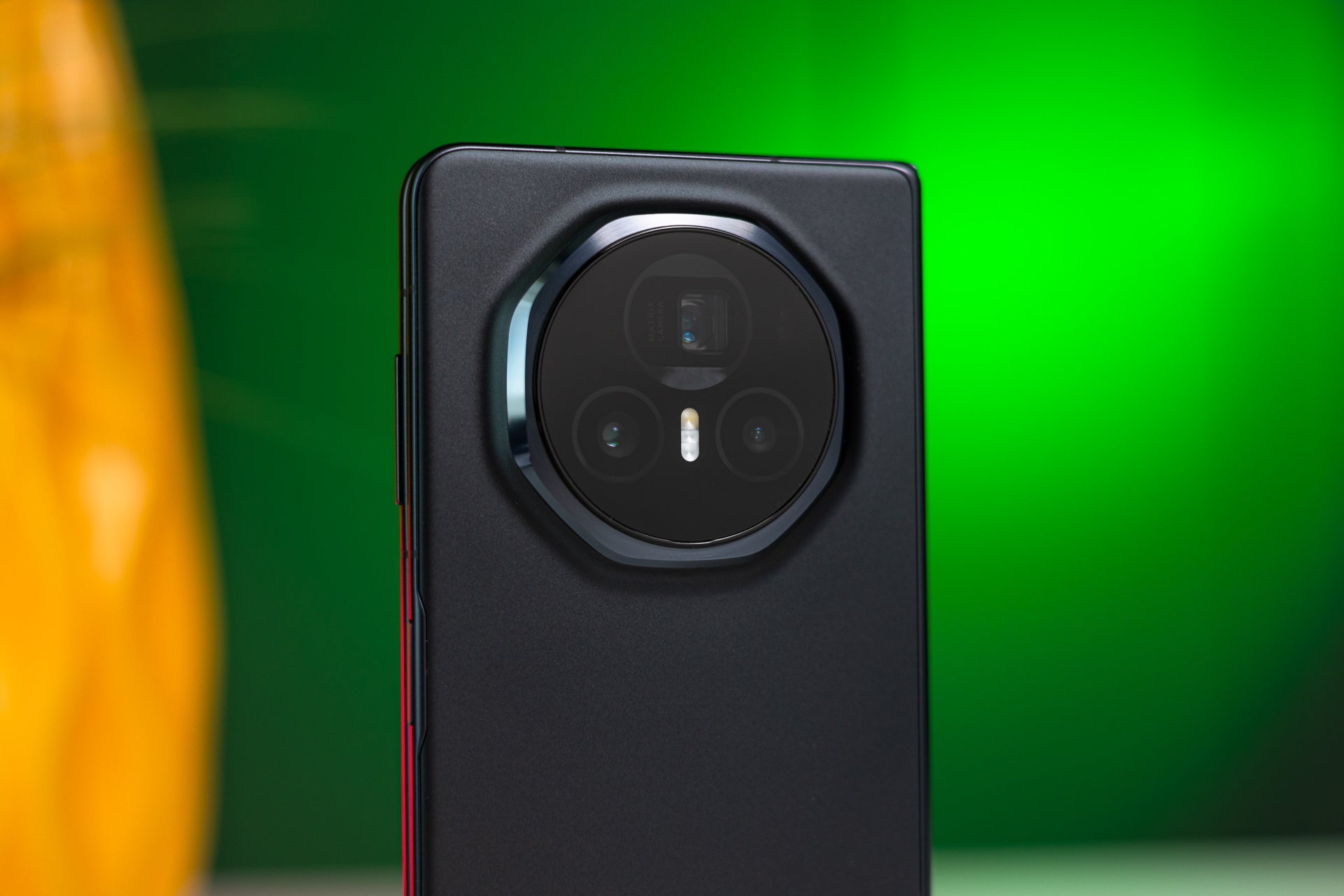
The octagonal design of the camera bump looks pretty nice (Image by PhoneArena)
The Honor Magic V3 features a triple camera system on its back, consisting of a wide angle camera, an ultrawide, and a periscope telephoto system. The main camera uses a Sony IMX906 stacked sensor with 1/1.56" size and f/1.6 aperture.
The ultrawide camera has a 40MP sensor under a lens with an f/2.2 aperture and 112-degree field of view. The periscope system uses a 1/2.51-inch 50MP sensor with f/3.0 aperture and 3.5x optical zoom.
There are two front cameras, one on the cover screen, and one on the main screen. Both use 20MP sensors and f/2.2 apertures. But these are all specs, and we all know that image samples are the ones that matter. You'll find them below.
The ultrawide camera has a 40MP sensor under a lens with an f/2.2 aperture and 112-degree field of view. The periscope system uses a 1/2.51-inch 50MP sensor with f/3.0 aperture and 3.5x optical zoom.
There are two front cameras, one on the cover screen, and one on the main screen. Both use 20MP sensors and f/2.2 apertures. But these are all specs, and we all know that image samples are the ones that matter. You'll find them below.
Main Camera
Photos taken with the main camera look great, with good detail, and the dynamic range is also pretty wide. The saturation is on the higher end, and it might not be everyone's cup of tea, but overall, the exposition, white balance, and tone of the samples are all very pleasing to the eye.
Night images are, as always, a bit of a hit and miss, as they rely heavily on algorithms and your steady hand. Even with the night mode turned off, there's some post-processing going on, applying HDR and other tricks to get more details out. Generally, the end result is good, with the best photos being the ones snapped with the main camera. The ultrawide and telephoto both tend to produce artifacts, and there's some loss of detail in low light conditions.
Zoom Quality
The periscope zoom system is a handy tool when you want to frame a distant object and you don't have access to it, but also as a portrait tool. At 3.5x zoom, images are quite good, detailed, and there's minimal digital processing going on. Backgrounds can turn a bit soft and the colors are slightly muted (we would say natural, but they look muted compared to the images from the main camera), but overall the Magic V3 can take decent images at its 3.5x optical zoom range.
Selfies
The selfie situation is a feast, really. You have two dedicated 20MP selfie cameras on both screens, and also the ability to use the main camera system to satisfy your narcissistic ideations. The latter yields the best results, as you can imagine, and you can also apply Harcourt effects to your self portrait. The bokeh is also pretty convincing, and we would use the main camera for such purposes, leaving the punch-hole ones for videocalls and other non-beauty-critical tasks.
Video Quality

Here's a quick comparison video against the Galaxy Z Fold 6. This video is recorded in 4K at 30 frames per second and shows that both phones are quite close. The Honor produces a bit warmer tones, but the Galaxy captures more detail in some situations, and less noise, especially in low-light conditions and using the ultrawide camera. When it comes to the main camera, image stabilization and overall quality, these two are close. What do you think?
Honor Magic V3 Performance & Benchmarks
Snapdragon on duty
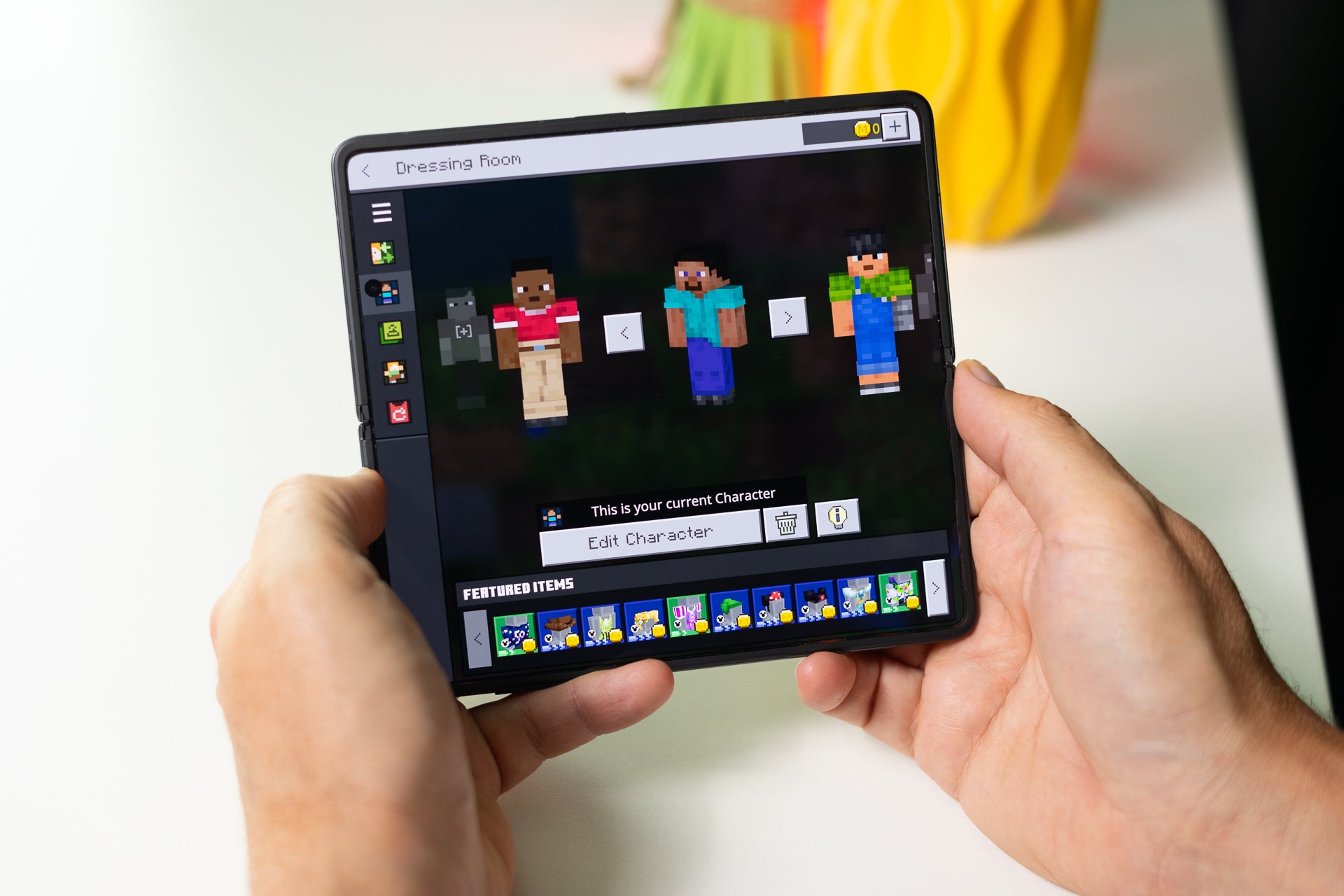
Gaming on this beautiful screen is a joy (Image by PhoneArena)
The Honor Magic V3 comes with a Snapdragon 8 Gen 3 processor onboard, the current Qualcomm champion. Granted, the phone gets hot under extreme benchmarks, and the score is somewhat lower than other phones sporting the same processor, but it's understandable.
This ultrathin 4.35 mm body doesn't have a lot of cooling space, especially when you factor in the 5,150 mAh battery. The fact that Honor was able to cram in everything and still get these dimensions and weight, is very impressive.
But back on the synthetic benchmarks. The scores are slightly lower than the main competitor Honor is gunning for (Galaxy Z Fold 6), but real life performance is smooth and fast.
This ultrathin 4.35 mm body doesn't have a lot of cooling space, especially when you factor in the 5,150 mAh battery. The fact that Honor was able to cram in everything and still get these dimensions and weight, is very impressive.
But back on the synthetic benchmarks. The scores are slightly lower than the main competitor Honor is gunning for (Galaxy Z Fold 6), but real life performance is smooth and fast.
Performance Benchmarks:
The phone comes in just one storage flavor with 12GB of RAM and 512GB of onboard memory. There's no microSD card slot or anything of the sort present.
Honor Magic V3 Software
The Honor Magic V3 comes running MagicOS 8.0.1 out of the box, based on Android 14. There's a lot of customization at hand, you can choose the home screen style (drawer or everything on the home screen), the lock screen style, icon size, placement, and colors, fonts, text size, etc.
You can use split screen mode easily, and open apps in split screen or floating mode, you can drag them to the corner of the screen and access them from the side menu, and you can also split them horizontally or vertically and save them as pairs.
The AI features onboard include the Magic Portal, which allows you to select text and images from basically anywhere on the screen and drag them to the corner to send them to different apps (Facebook or Instagram for a post, Gmail to attach to an email, Notes, etc.).
There's a new Face-to-Face translation option that allows you to translate between 10 languages with voice-to-text live translation and vice versa. There's also AI suggestions in the form of a folder on the main screen and also in the taskbar.
What's even more interesting is that Gemini is available on our test unit, and this includes Gemini Advanced with Gemini Live. We're not sure how this collaboration works exactly, and we've reached out to Honor to ask for additional details, as we know that Gemini Live is a subscription service that's available on the new Pixels with a one year gratis period.
There are other goodies from the Google AI Cloud available, such as Magic Eraser, you can edit annoying colleagues out of your pictures, and we're pretty sure more AI features will be coming to the Honor Magic V3.
Overall, MagicOS looks more and more polished, and what's even cooler is that the Magic V3 will receive four major OS updates and five years of security patches. It's not on par with what Google and Samsung are offering in this department, but four years sound pretty solid.
Honor Magic V3 Battery
Third generation silicon-carbon
Honor was the first brand to commercially offer silicon-carbon batteries in smartphones outside China with the Honor Magic 6 Pro. The V3 sports the third-generation silicon-carbon battery tech, and thanks to it, we have a huge 5,150mAh battery onboard. We say huge because the body is so thin that it's really impressive. The phone houses a flagship processor, a periscope zoom camera, and a dual battery arrangement of the aforementioned capacity.
The Honor Magic V3 obliterates the competition when it comes to web browsing and video streaming, and only loses by an hour and a half to the Z Fold 6 in our gaming test. This may be down to thermal throttling.
In real life conditions, the battery lasts a full day of heavy use easily, even if you use the inner screen most of the time. With more mixed and moderate usage, you can stretch this to two days (if you use the cover screen most of the time), which is again very impressive given the size of the phone.
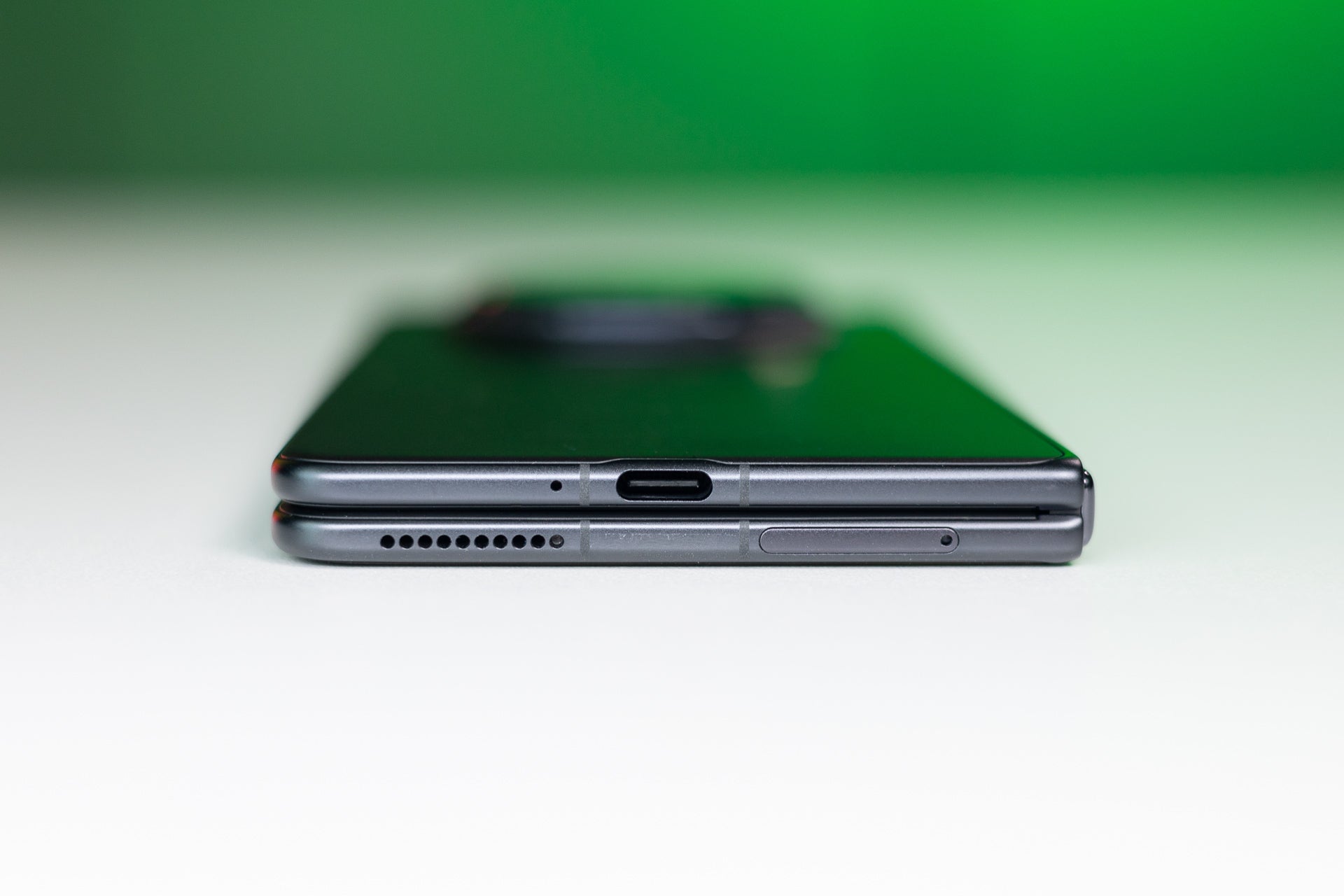
The USB-C port on the Magic V3 barely fits in the thin body (Image by PhoneArena)
The charging situation is also very impressive, the Honor Magic V3 supports 66W of wired charging power and 50W wireless (though you will need Honor's proprietary wireless charger to get the full beans). How they found space for the wireless charging coil in this 4.35 mm body is beyond us.
A full charge with the bundled fast charger takes only 48 minutes, and a quick 15-minute top-up will get you to 40%. We didn't get the chance to test the full potential of the wireless charging, as we're still waiting for the Honor SuperCharge wireless charger.
Honor Magic V3 Audio Quality and Haptics
The stereo speakers inside the Honor Magic V3 are decent, we tested them against the Honor Magic 6 RSR, and, of course, the Porsche Design phone is far superior with Bluetooth-speaker-like volume and quality.
The Magic V3 is not the loudest phone out there, and there are some squished frequencies, but overall the quality is good, and there's no distortion at max volume. The only gripe we have with the speaker's arrangement is that they are positioned solely in the left wing of the phone, and when you unfold it, you get a strange one-sided sound.
Haptics are a bit weak though, it seems that the vibration motor is positioned in the right part of the body, so you feel a bit disconnected, vibration-wise, when you use it folded and tapping on the cover screen. When you unfold the V3, things get better, but haptics aren't the strong side of this device.
Should you buy it?
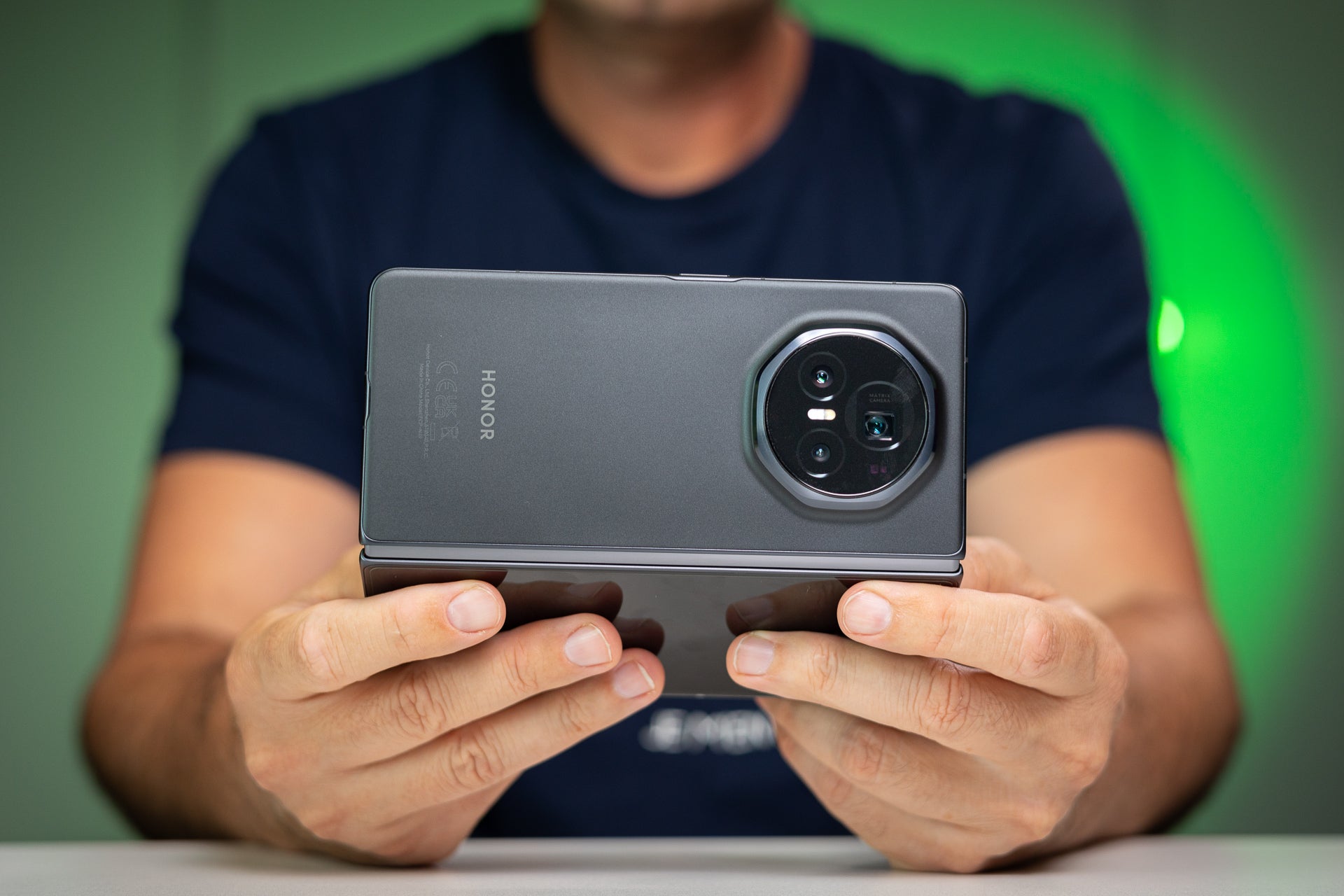
A technological marvel, but at a price? (Image by PhoneArena)
At the end of the day, the Honor Magic V3 managed to complete its mission. It beats the Galaxy Z Fold 6 by a hair (0.2 in our rating system). There are arguments to be made in favor of both phones, but if you want one of the thinnest foldable on the market, you should try and get the Honor Magic V3.
We say "try" because availability is always a problem (as this thing is not officially sold in the US), but when there's a will, there's a way. The Magic V3 improves on every single area compared to its predecessor and finally achieves the foldable wet dream—it really feels like a normal phone when folded.
More importantly, it can compete not only against other foldables, but also against conventional bar phones of the more rigid nature. The only drawback here is the price, you have to be committed to the foldable concept to spend around 2000 euros on a phone. It's worth noting, though, that the Honor Magic V3 starts at 1,699 British Pounds Sterling for the 12/512GB configuration, and the similar storage option for the Galaxy Z Fold 6 costs 1,899 pounds. So, there's also that.
We say "try" because availability is always a problem (as this thing is not officially sold in the US), but when there's a will, there's a way. The Magic V3 improves on every single area compared to its predecessor and finally achieves the foldable wet dream—it really feels like a normal phone when folded.
More importantly, it can compete not only against other foldables, but also against conventional bar phones of the more rigid nature. The only drawback here is the price, you have to be committed to the foldable concept to spend around 2000 euros on a phone. It's worth noting, though, that the Honor Magic V3 starts at 1,699 British Pounds Sterling for the 12/512GB configuration, and the similar storage option for the Galaxy Z Fold 6 costs 1,899 pounds. So, there's also that.
Follow us on Google News

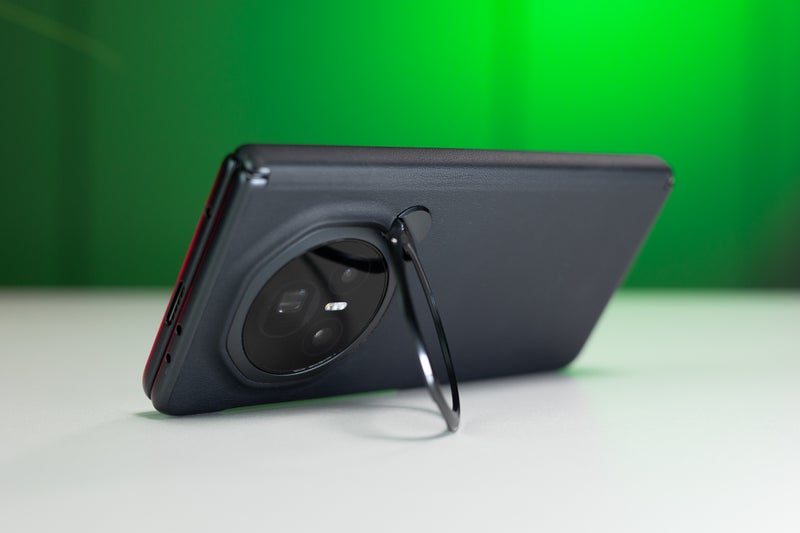
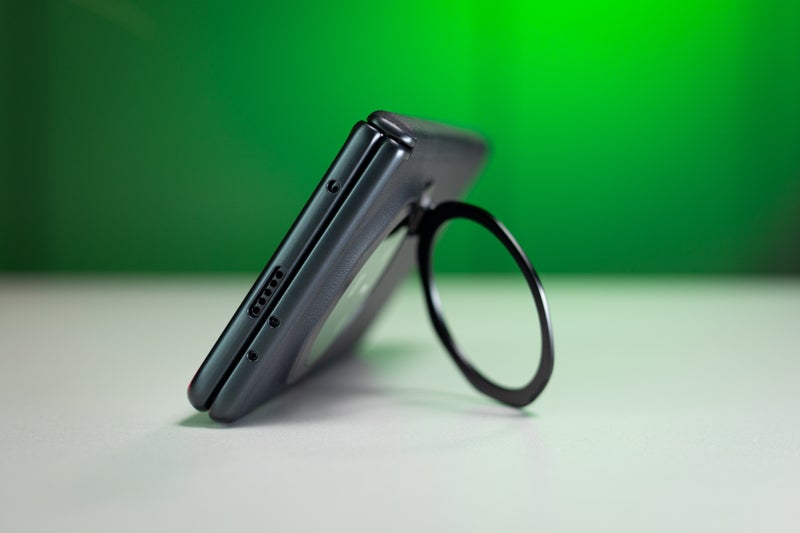
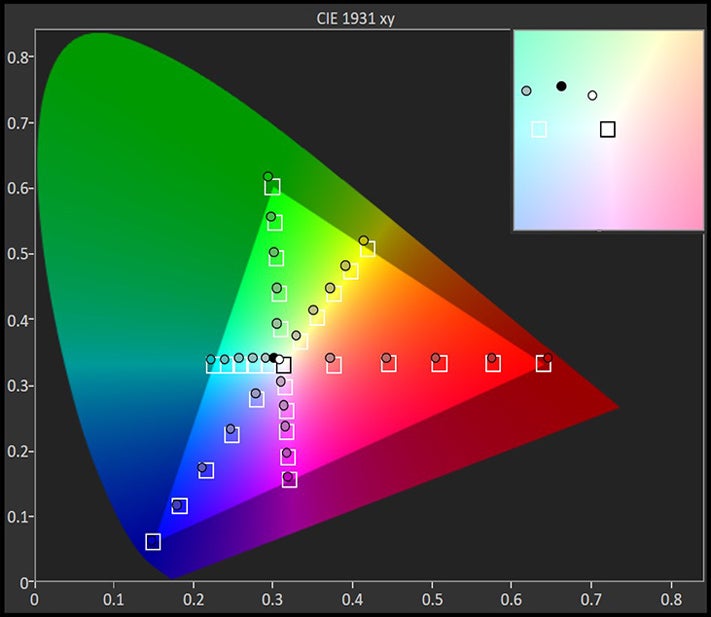


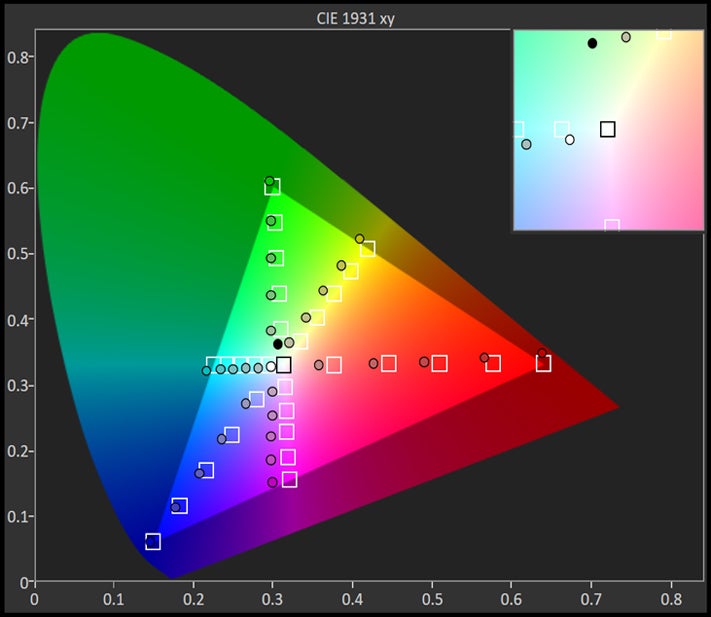




















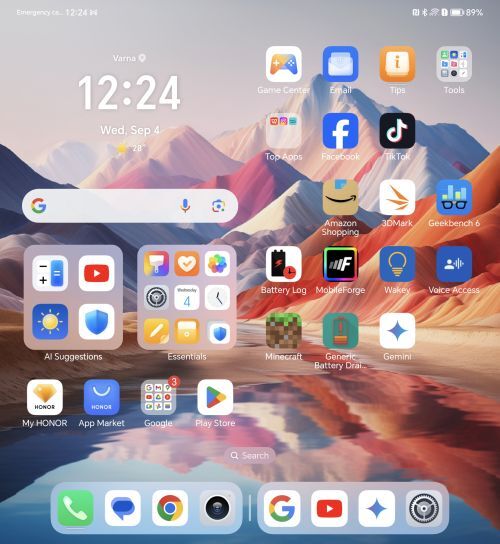
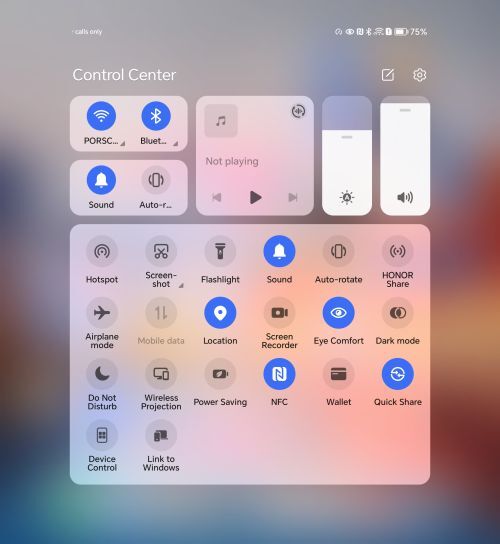
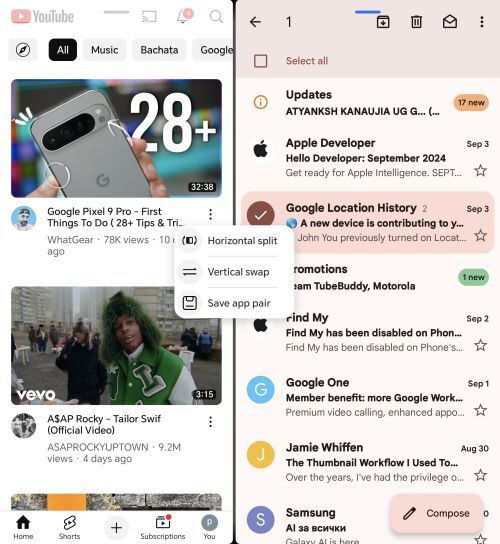
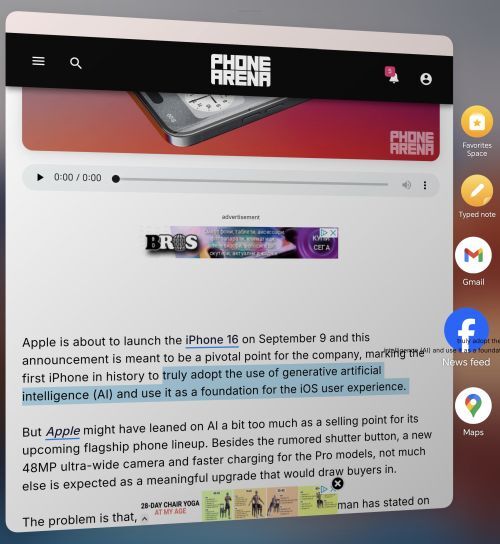
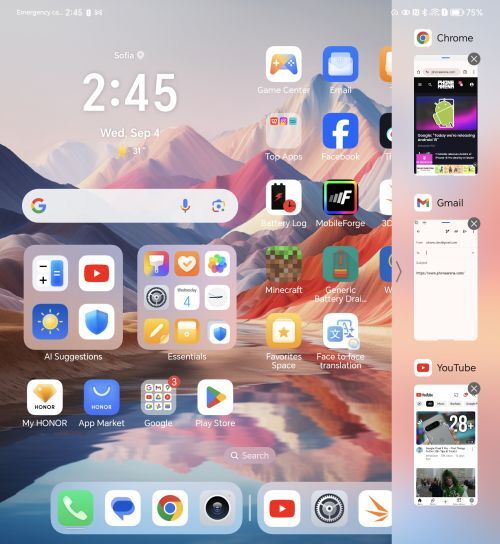

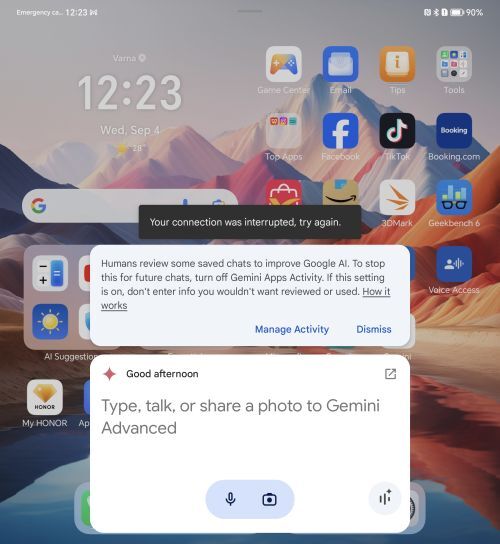
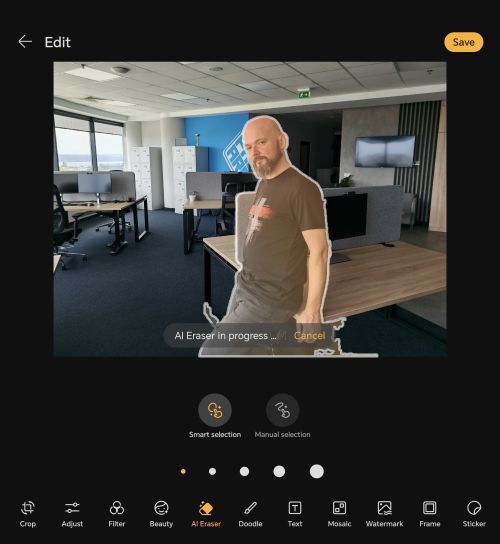
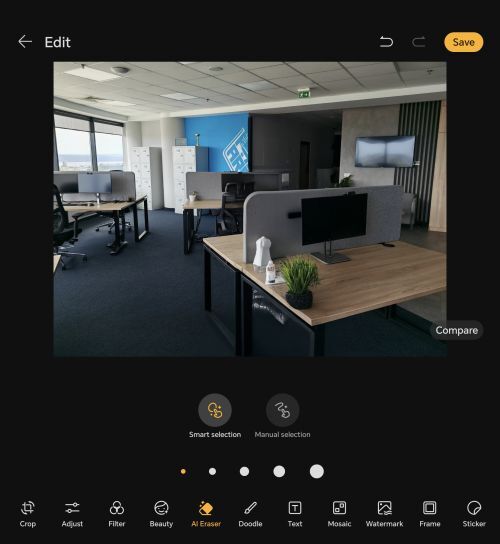
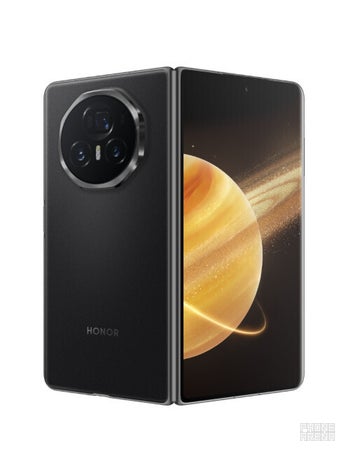





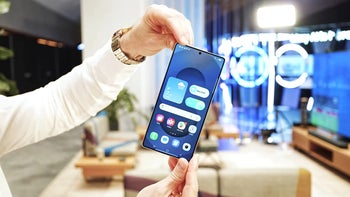





Things that are NOT allowed:
To help keep our community safe and free from spam, we apply temporary limits to newly created accounts: